9 items found
Page 1 of 1
-
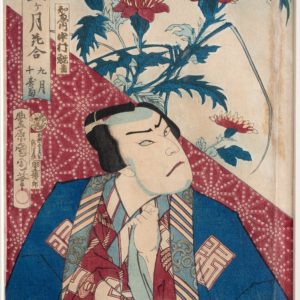
“Twelve Months of Flowers September Senju Chrysanthemum “Chienai Nakamura Suzaku”by Toyohara Kunichika
£350 -
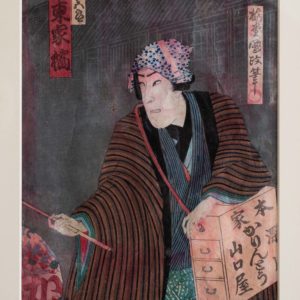
Bandō Kakitsu I, an actor by Baido Kunimasa
£350Bandō Kakitsu I, an actor by Baido Kunimasa
R/H section of a triptych depicting the actor Bandō Kakitsu I playing a karinto merchant in the play Chitose-za shin kyogen Tsuki shiraha bonji horimono.£350 -
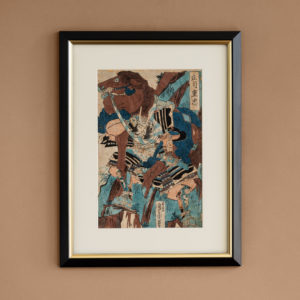
Samurai Warlord, Hatakeyama Shigetada by Utagawa Kunimune
£350Samurai Warlord, Hatakeyama Shigetada by Utagawa Kunimune
Hatakeyama Shigetada, was a warrior of the early Kamakura Period (1185-1333) famed for his virtue and bravery.£350 -
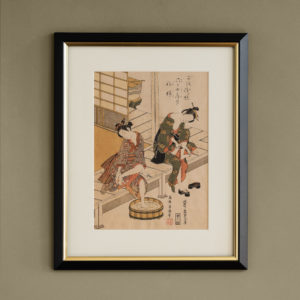
Pedicure by Torii Kiyohiro
£350Pedicure by Torii Kiyohiro
Produced by of the leading artists of the era of two-colour 'benizurie' prints, where the works are printed in pink (beni) and green, a style that peaked in the early 1740s.£350 -
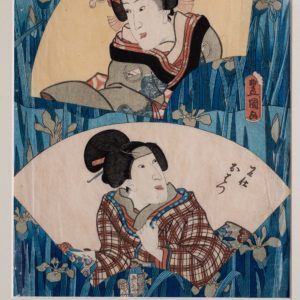
Yaoya oshichi meshitsukai o Hatsu by Utagawa Kunisada
£350Yaoya oshichi meshitsukai o Hatsu by Utagawa Kunisada
Yaoya Oshichi was a daughter of the greengrocer Tarobei, who lived in the Hongō neighborhood of Edo at the beginning of the Edo period. She was burned at the stake for attempting to commit arson. The story became the subject of joruri puppet plays.£350 -
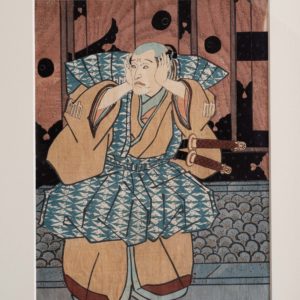
An actor from Chushingura by Utagawa Kunisada
£350An actor from Chushingura by Utagawa Kunisada
Chushingura, was Japan’s most popular kabuki play, with its origins in an event of organized mob violence in 1702, its a complex story of unquestioning loyalty, revenge, conflict, love, and punishment.£350 -
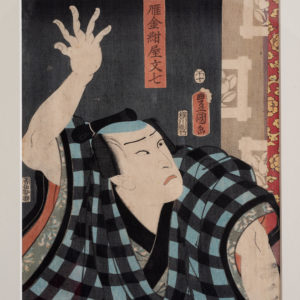
Kataoka Nizaemon VIII as Karigane Kon’ya Bunshichi by Utagawa Kunisada I (Toyokuni III)
£350Kataoka Nizaemon VIII as Karigane Kon’ya Bunshichi by Utagawa Kunisada I (Toyokuni III)
This print originally formed the R/H side from a triptych of the play, Eiyû Koko ni Yorimasa£350 -
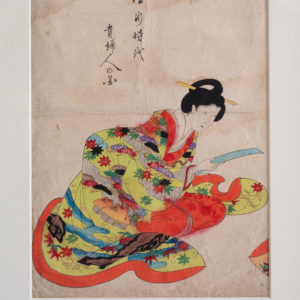
A girl reading poetry by Toyohara Chikanobu
£350A girl reading poetry by Toyohara Chikanobu
This print originally formed the R/H side of a triptych.£350 -
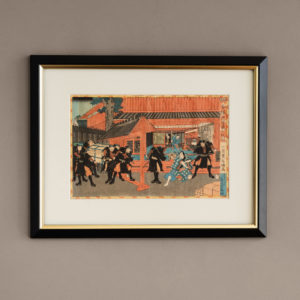
A scene from ’47 Ronin’ a Japanese Samurai Tale, 1852, after Utagawa Fusatane (active 1854-1889)
£350A scene from ’47 Ronin’ a Japanese Samurai Tale, 1852, after Utagawa Fusatane (active 1854-1889)
This print vividly depicts the famous night attack of 47 ronin, or masterless samurai, on the house of Moronao.£350
Featured Items
-
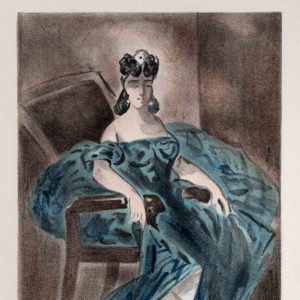
Portraits Part I by Constantin Guys, Verve Vol 2 / No. 5-6.
£500Portraits Part I by Constantin Guys, Verve Vol 2 / No. 5-6.
The Verve Review was a purposefully luxurious. It ran from 1937 to 1960, but with only 38 editions available, due to the high degree of design and editorial work dedicated to each issue. Each edition contained unique lithographic prints, commissioned by the editor, and each cover a double-page lithograph elaborated by one of the artists contained within. It was the brainchild of its editor Stratis Eleftheriades, a Greek National who moved to Paris in the early thirties to take part in the growing Modernist movement, writing under the name of Teriade.£500 -
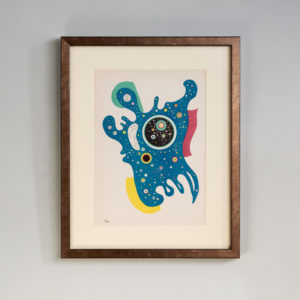
Stars by Wassily Kandinsky, Verve Vol. 1 / No. 2.
£800Stars by Wassily Kandinsky, Verve Vol. 1 / No. 2.
The Verve Review was a purposefully luxurious. It ran from 1937 to 1960, but with only 38 editions available, due to the high degree of design and editorial work dedicated to each issue. Each edition contained unique lithographic prints, commissioned by the editor, and each cover a double-page lithograph elaborated by one of the artists contained within. It was the brainchild of its editor Stratis Eleftheriades, a Greek National who moved to Paris in the early thirties to take part in the growing Modernist movement, writing under the name of Teriade.£800 -
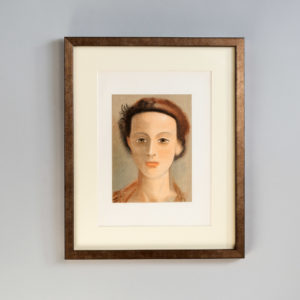
Portrait by Andre Derain, Verve Vol 2 / No. 5-6.
£800Portrait by Andre Derain, Verve Vol 2 / No. 5-6.
The Verve Review was a purposefully luxurious. It ran from 1937 to 1960, but with only 38 editions available, due to the high degree of design and editorial work dedicated to each issue. Each edition contained unique lithographic prints, commissioned by the editor, and each cover a double-page lithograph elaborated by one of the artists contained within. It was the brainchild of its editor Stratis Eleftheriades, a Greek National who moved to Paris in the early thirties to take part in the growing Modernist movement, writing under the name of Teriade.£800 -
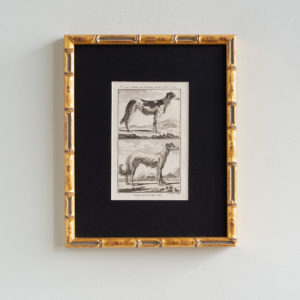
18th Century French Engravings of Dogs
£175 each18th Century French Engravings of Dogs
Published for, Histoire naturelle, générale et particulière (1749–1804), which was the first modern attempt to systematically present all existing knowledge in the fields of natural history, geology, and anthropology.£175 each
